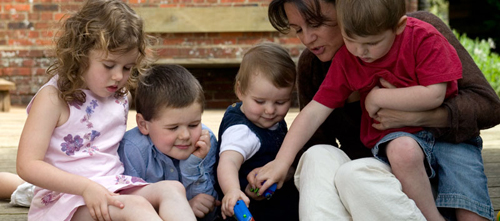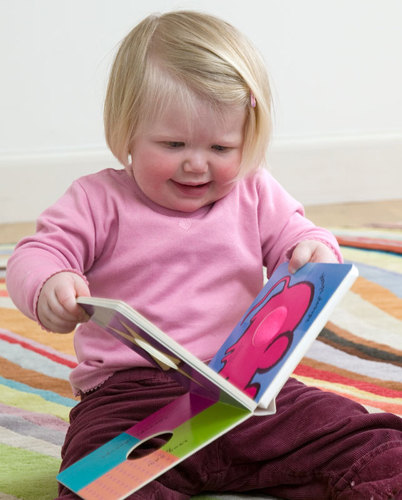Perhaps the most important, but also most
challenging, part of being a parent is finding personal time. You have
taken on a role, a label, and a host of expectations about your
behavior, your priorities, your choices, and the use of your time, that
will transform your life and your vision of yourself.
“As a parent,
I’m finding the financial pressures are a lot greater now, so I am
working longer hours and am tired when I get home. I’m not sure I could
face an evening out, even if we had the money.”
—“As a parent,
I’m finding the financial pressures are a lot greater now, so I am
working longer hours and am tired when I get home. I’m not sure I could
face an evening out, even if we had the money.”
“I love my children, but I really long for some real conversation so that I feel like an adult again.”
—“I love my children, but I really long for some real conversation so that I feel like an adult again.”
“I look at myself in the
mirror sometimes and don’t know who I am anymore. In spite of the
enjoyment I get from being a parent, I seem to have lost all my
self-confidence and our relationship is under pressure.”
—“I look at myself in
the mirror sometimes and don’t know who I am anymore. In spite of the
enjoyment I get from being a parent, I seem to have lost all my
self-confidence and our relationship is under pressure.”
While your toddler is
enjoying his first experience of independence, you may be wondering
where your own has gone! Babies are much more portable than toddlers;
even so, parents may be under the illusion that life can continue much
as before. But not for long! The onset of toddlerhood, or having more
than one child in the family, changes everything, and personal needs and
interests can often take second place to parenting. Work, on the other
hand, can often become a place of refuge.
Beyond parenting
Your children have to be a priority, but it isn’t beneficial in
the long run to you or to them if they take over your life completely.
It’s positive for you all to have time away from each other
occasionally.

Getting the balance right
Some parents feel guilty
when they find they miss their previous life, or feel pangs of envy when
talking to childless friends; others are happy to stay cocooned in
their family world with their children, and feel they don’t need
anything else. As we all know, achieving balance in all things is the
healthiest way to live, but can be hard to achieve and maintain. A
parent who is unhappy or frustrated will convey that mood to their
child; if both parents are in the same state, then uproars and
frustration are likely. Parents who live solely for their children
inadvertently make it harder for the children to separate from them and
develop self-confidence. Early interaction with others is great for your
child’s social development. The great secret of successful parenting is
planning ahead—and sticking to those plans. Many parents are great at
cramming the datebook with priorities to fulfill their children’s needs,
but are less consistent when it comes to their own. It is usually
possible to find someone suitable to babysit and to allow enough time in
advance for your child to get used to the person who is to care for
them. It is essential to have a “back-up” person, since you never know
when it might be necessary for you to be away from home in an emergency.
Take a moment to ask yourself the following questions.
So often it is pressure or
fatigue that gets in the way of having private time. Money is rarely
the core issue since there is usually someone who would be willing to
give some time in exchange for a return favor. If you feel your child
would be a bit of a handful for someone outside the family, try taking
the risk and you might get a positive surprise. Becoming a parent
doesn’t stop you being an individual.
How long is it since I…
Saw friends without my children?
Went out for an evening with my partner?
Had quality time on my own?
Saw a movie?
Got dressed up?
Took up a hobby?
Got physical exercise (other than pushing a stroller)?
Bought new clothes that weren’t practical?
Went on vacation?
Sat and read a book?
Felt on top of things?
Had a full night’s sleep?
Got home from work on time?
Accepted a social invitation?
Felt really good about myself?
Now try another set of questions:
How would you like to spend more time for you?
How would you like to spend time with your partner?
What is getting in the way of you doing it?
Is
there someone who would be willing to spend a few hours babysitting one
evening every week/month and how soon could you arrange this?
Your health and relationship
As a parent you have
to be physically and emotionally well. Poor nutrition and a lack of
exercise can contribute to feelings of fatigue and ill health. There is a
wealth of information available on the essentials of healthy eating so
get some advice if you have gone off track. Keeping on the move, taking
care of your health, and eating well are the essentials for feeling
energetic and positive and great traits to pass on to your children.
Just as important is making
time for your partner. Communication and affection are important
aspects of a relationship that need nurturing. If necessary, make a date
to be together at home, but try not to talk about the children! The
same is true for lone parents. For those facing the challenge of
parenting without a partner, friends are particularly important. You owe
it to yourself to have a social life and your child will benefit, too.
Dear Tanya
| Q: |
It is a year since my daughter was born and I still feel fat and
unattractive and not myself. I can’t find the time or the motivation to
get in shape. How can I get some of my old self back?
|
| A: |
The feelings you are describing are shared by the vast majority
of mothers at some point. Finding time for yourself is a challenge when
you have a toddler, but your weight gain is as much an emotional issue
as it is a physical one.
Becoming a mother does
not have to mean saying goodbye to your old self and you owe it to your
child, as well as to yourself, to rediscover interests that do not
involve the home and motherhood. Your toddler can deal with periods of
separation from you and it will help her own development to understand
that Mommy has friends and hobbies of her own. If you have a partner and
he likes you the way you are, he will also like you when you return to
liking yourself—and chances are your weight will then be much easier to
lose once you have regained some of that lost self-esteem.
|
| Q: |
My 18-month-old son likes to say goodnight to his daddy before
he goes to bed, so I let him fall asleep in front of the TV until my
partner gets home from work. Is this a mistake?
|
| A: |
The danger is that you are creating a habit that will be hard to
break. He is beginning to associate TV and Daddy waking him as part of
his nighttime ritual. A child who has a disrupted sleep pattern is more
likely to act out during the day and at this age your son may need at
least 11 hours’ sleep a night. It would be wise to start to introduce a
regular routine with bathtime, followed by a short bedtime story, and
then into bed. He is old enough to have a phone call from Daddy as a
comforting alternative.
|
| Q: |
I feel very feel guilty about being at work all day and away
from my son and then find it hard to say “No” to him when I come home. I
don’t want him to resent me or to stop a close bond from developing
between us.
|
| A: |
Provided your son is happy when he is with his daytime
caregivers, you have no reason to feel guilty. Spending time away from
you will help him to get used to other people and to develop social
skills. Nor do you need to worry about jeopardizing the bond between
you. Your son loves to be with you and during the toddler years will
crave your approval and affection. However, showing him that you love
him includes having the commitment to create and stick to behavior
limits. He needs you to help him learn how to contain the extremes of
his behavior, and he needs to know that you need time for yourself, too.
Being a permissive
parent may seem kinder or easier than putting some rules in place, but
you are setting up a pattern that will lead to long-term problems. If
your child has no limits, your evenings will become tense. Instead of
having quality time together you will feel out of control and so will
he. The older he gets, the harder it will become to change his behavior.
Don’t let your feelings of guilt hamper your parenting skills and
prevent you helping your son to learn positive and healthy behavior
management skills.
|
5 points to remember
A little individual
Think of your child as her own person and remember she will grow
up to be uniquely herself. She will develop into a strong, positive
individual with your love and support.

How she plays
At this age, it is normal for your toddler to play by herself.
She won’t be ready to play with other children for some time yet, but
she will love you to be her playmate.

Don’t
feel you need to force development in any way since it will all happen
in good time. Try not to get hung up on milestones and comparing your
child with others.
One
of the biggest challenges is to make sure that praise and encouragement
are used frequently and that the word “No” does not dominate. Behaving
well is the result of good behavior habits, a routine, and plenty of
praise, rather than enforced behavior.
Your
toddler does not need elaborate toys—normal household objects may often
hold more delight and are better suited to this age group than
multifunctional toys. Everyday activities, such as dressing and
shopping, can all offer room for fun and games.
Your
child’s behavior and capacity for self-control may fluctuate markedly.
This is normal and is the result of him having to adjust to so many
changes.
For
the sake of everyone’s sanity, abandon all hope of an immaculate house
for the next few years. Embracing mess and chaos is all part of the
child development process, and while cleanliness is important, it
shouldn’t be taken to extremes.